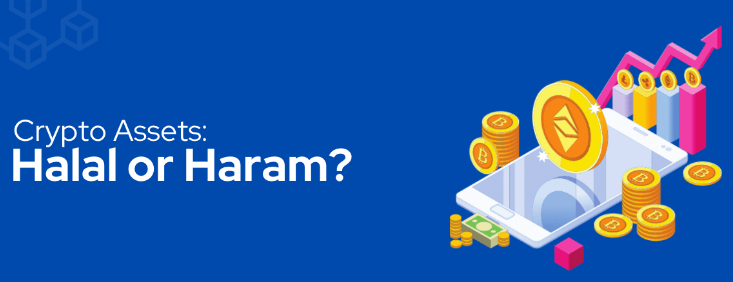[Paraphr 🔗
Cryptocurrency has gained immense popularity worldwide, causing both remarkable profits and regulatory challenges. However, within the realm of Islamic finance, it has raised a theological debate concerning its religious permissibility. The central question revolves around whether cryptocurrency aligns with the principles of Sharia law and is considered halal or haram.
The Challenges of Navigating the Sharia Sea Surface 🔗

Deciphering the permissibility of cryptocurrency involves navigating through the complex principles of Sharia, rather than simply providing a straightforward yes or no answer. Within the ongoing debate, three main concerns arise:
Charging excessive interest, known as Riba, is strictly forbidden in Sharia law. Although cryptocurrency does not involve traditional interest, its value fluctuations determined by the market have raised concerns. Certain scholars argue that the absence of fixed rates might make it permissible (halal) within this context.
Cryptocurrency trading, often compared to gambling, is seen as a risky endeavor due to its reliance on speculation and unpredictable price fluctuations. This comparison is based on the absence of tangible assets and lack of centralized regulation, which compound concerns about its potential risks.
Excessive uncertainty or ambiguity, known as gharar, is a crucial factor in ensuring compliance with Sharia law. Due to its limited track record and unpredictable market fluctuations, cryptocurrency undoubtedly possesses a notable degree of gharar. These circumstances give rise to concerns regarding the fundamental principles of fairness and transparency in Islamic finance.
Scholarly Perspectives Across the Islamic World: Varying Opinions 🔗
Scholars from different parts of the Muslim world have arrived at varying conclusions concerning these concerns. For instance, the Indonesian Ulema Council considers cryptocurrency as completely forbidden (haram) due to its connection to gharar and maysir. On the other hand, the Islamic Finance Guru views it as potentially permissible (halal) if specific projects adhere to Sharia principles and refrain from engaging in activities associated with gharar, maysir, or riba.
Transactions versus Speculation: A Nuance is Revealed 🔗
In addition to the intricacy, numerous experts emphasize the differentiation involving the utilization of cryptocurrency as an authorized medium of exchange and merely engaging in investment for the purpose of gaining profit. They contend that the former, when the fundamental technology enables ethical transactions, could be considered acceptable. Conversely, the latter raises greater apprehensions due to the speculative characteristics associated with trading.
Taking Personal Accountability and Sustained Discussion: Mapping the Path 🔗
It is important to keep in mind that the interpretations of Sharia can differ depending on the geographic region and the specific school of thought. This diversity results in the absence of a universally accepted judgment regarding the halal status of cryptocurrency. Ultimately, it is up to individual Muslims to determine its permissibility. Conducting thorough research and seeking guidance from reputable scholars are crucial in order to make well-informed decisions that align with personal beliefs and interpretations of Sharia.
In addition, it is important to approach the ever-changing cryptocurrency landscape with caution. As regulations become more defined and new uses arise, it may be necessary to reassess the permissibility of certain projects and practices. Maintaining an ongoing dialogue among academics, industry professionals, and the Muslim community is vital in order to navigate this dynamic realm ethically and with a clear understanding.
In summary: An Unclear River, Lucid Reflection 🔗

The issue of whether cryptocurrency is halal or haram lacks a straightforward answer. It is a complex realm filled with religious intricacies and practical considerations. As Muslims navigate this unfamiliar terrain, it is crucial for them to employ critical thinking, rely on well-informed scholarship, and uphold individual responsibility in order to ensure that their financial endeavors remain true to their faith and principles. It is important to remember that while the realm of cryptocurrency may be unclear, making halal financial decisions can become evident through careful contemplation and guidance.